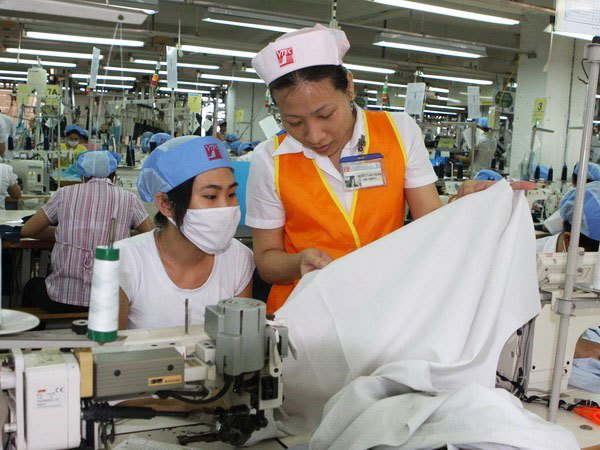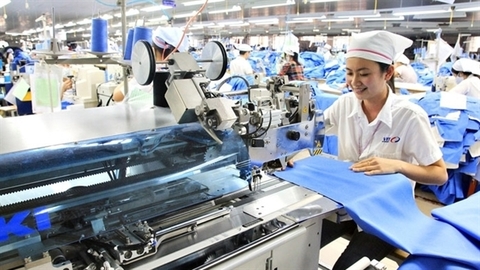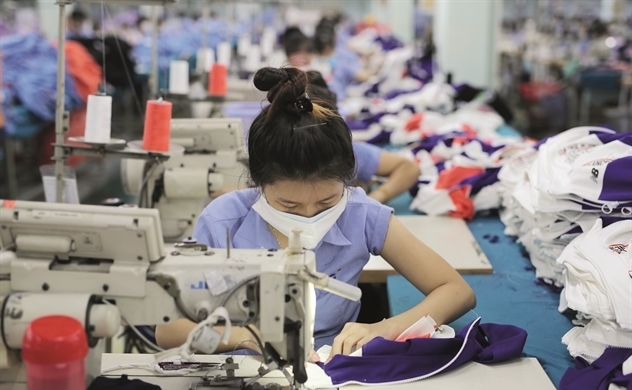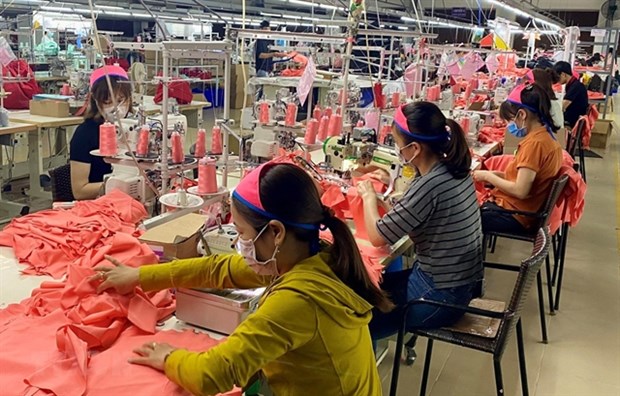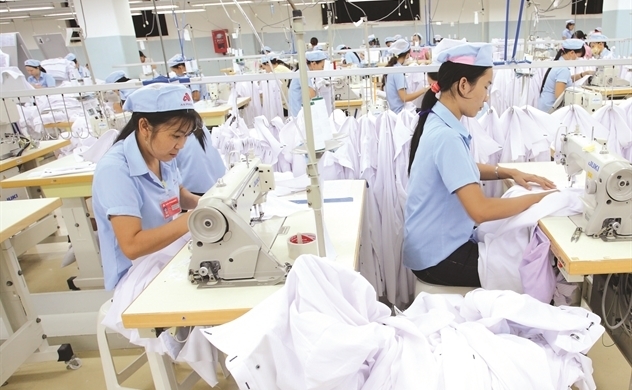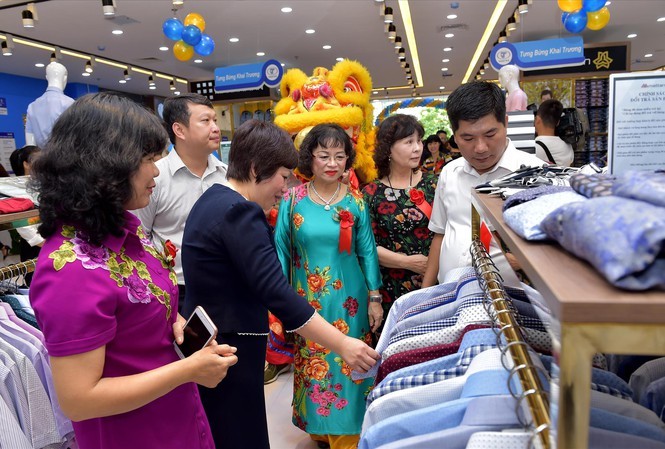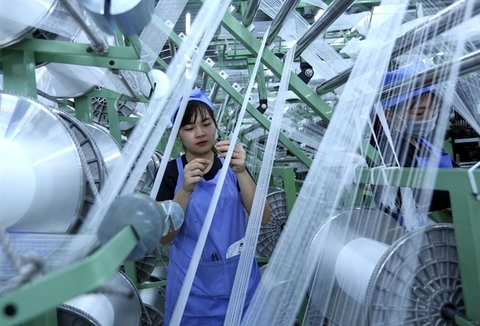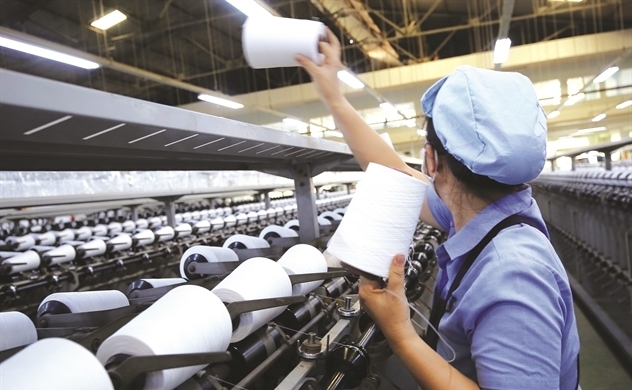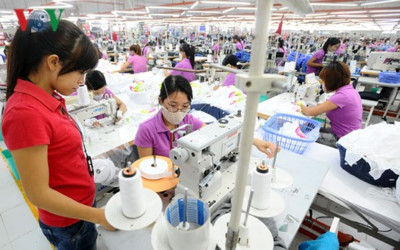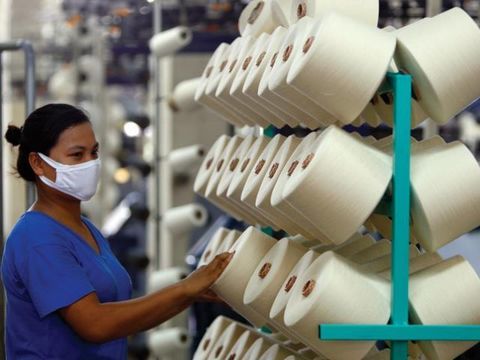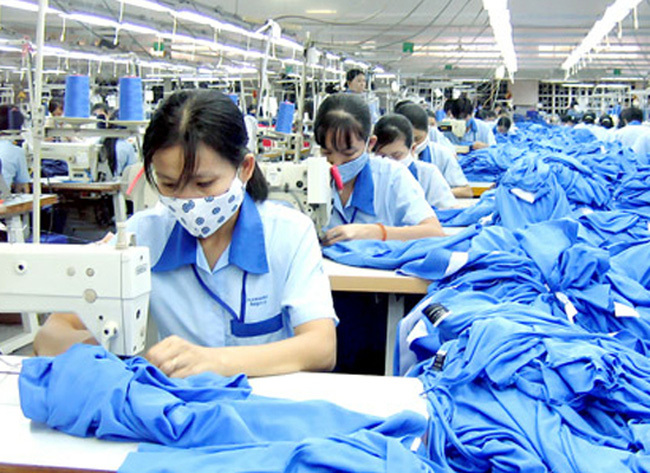- © Copyright of Vietnamnet Global.
- Tel: 024 3772 7988 Fax: (024) 37722734
- Email: [email protected]
vitas
Update news vitas
Textile companies hope for better days ahead
Textile and garment companies have made big strides in the industry for the past decade, but 2020 was a challenge.
Fabric production an issue for Vietnam's textile industry
Fabric production is a challenge for Vietnam's textile and garment industry when it comes to free trade agreements (FTAs) requirements on product origin.
Vietnamese textile and garment industry: difficulties still ahead
 With demand decreasing sharply, the textile and garment industry is expected to continue facing difficulties in Q2.
With demand decreasing sharply, the textile and garment industry is expected to continue facing difficulties in Q2.
VN garment exports forecast to plummet due to lack of orders
 Vietnam's garment and textile exports in the first four months fell 10 percent year-on-year to 10.63 billion USD and could fall much further as buyers cancelled orders due to COVID-19, according to the Vietnam Textile and Apparel Association (Vitas).
Vietnam's garment and textile exports in the first four months fell 10 percent year-on-year to 10.63 billion USD and could fall much further as buyers cancelled orders due to COVID-19, according to the Vietnam Textile and Apparel Association (Vitas).
Vietnam aims for $100 billion export turnover from textiles and garments
 Prime Minister Nguyen Xuan Phuc emphasized that it was necessary to settle six problems in the textile and garment industry to avoid losing important export markets.
Prime Minister Nguyen Xuan Phuc emphasized that it was necessary to settle six problems in the textile and garment industry to avoid losing important export markets.
Vietnam garment companies had tough year in 2019
 After two years of hot development, Vietnam’s textile and garment industry could not fulfill the target of exporting $40 billion worth of products in 2019.
After two years of hot development, Vietnam’s textile and garment industry could not fulfill the target of exporting $40 billion worth of products in 2019.
CPTPP not proving a hit across the board
 Vietnam has been unable to gain export growth to all CPTPP member countries, according to the Ministry of Industry and Trade.
Vietnam has been unable to gain export growth to all CPTPP member countries, according to the Ministry of Industry and Trade.
Textile and garment companies need more orders for 2020
 The number of orders that textile and garment companies have received for 2020 is just equal to 80 percent of that in the same period last year.
The number of orders that textile and garment companies have received for 2020 is just equal to 80 percent of that in the same period last year.
VN garment, textile export falls short of target but surplus impressive
 Vietnam’s garment and textile exports were estimated at US$39 billion this year, slightly falling short of the US$40 billion target.
Vietnam’s garment and textile exports were estimated at US$39 billion this year, slightly falling short of the US$40 billion target.
VN textile and garment industry may fail to reach $40 billion target
 The target of exporting $40 billion worth of textiles and garments this year may be unattainable.
The target of exporting $40 billion worth of textiles and garments this year may be unattainable.
Vietnam’s textile export value up almost 9% in eight months
 Vietnam Textile and Apparel Association (Vitas) said the total export value of textiles, fiber, and cloth reached US$25.7 billion in the first 8 months of the year, up 8.6 per cent year on year, including 60.6 per cent from FDI enterprises.
Vietnam Textile and Apparel Association (Vitas) said the total export value of textiles, fiber, and cloth reached US$25.7 billion in the first 8 months of the year, up 8.6 per cent year on year, including 60.6 per cent from FDI enterprises.
Garment orders don’t increase as expected
 Vietnam’s textile and garment companies are trying to find more orders to ensure continuous production from now to the end of the year.
Vietnam’s textile and garment companies are trying to find more orders to ensure continuous production from now to the end of the year.
Safety initiative in apparel and footwear factories started in VN
 The Vietnam Textile and Apparel Association (VITAS) in co-operation with IDH – a Dutch sustainable trade initiative – kick-started the Life and Building Safety Initiative (LABS).
The Vietnam Textile and Apparel Association (VITAS) in co-operation with IDH – a Dutch sustainable trade initiative – kick-started the Life and Building Safety Initiative (LABS).
Textile and garment industry sees great opportunities in EVFTA
 A number of industries that make products for export, including textiles and garments, are expected to change for the better if they can take full advantage of the value chain from EVFTA.
A number of industries that make products for export, including textiles and garments, are expected to change for the better if they can take full advantage of the value chain from EVFTA.
Trade war to benefit Vietnam’s fashion: Fitch Solutions
 Vietnam and Bangladesh are forecast to reap benefits from becoming alternative sourcing destinations as the fashion sector is reckoned the most exposed amid an escalating US - China trade war, according to Fitch Solutions analysts.
Vietnam and Bangladesh are forecast to reap benefits from becoming alternative sourcing destinations as the fashion sector is reckoned the most exposed amid an escalating US - China trade war, according to Fitch Solutions analysts.
VN textile and garment producers could face problems meeting CPTPP, EVFTA standards
 Vietnam’s textile and garment may not be able to take full advantage of the preferential tariffs of two important FTAs, CPTPP and EVFTA, because of problems in input materials.
Vietnam’s textile and garment may not be able to take full advantage of the preferential tariffs of two important FTAs, CPTPP and EVFTA, because of problems in input materials.
Vietnam's yarn industry experiences difficulties
Vietnam's yarn industry faces many challenges in production and export, especially to China, one of the largest export markets for local yarn products, according to experts.
Vietnam's textile industry aims for green standards
The textile and garment industry, aiming to take advantage of free trade agreements (FTAs) with a focus on green manufacturing, is upbeat about earning US$60 billion from exports by 2025.
Textile & garment, footwear industries told to expect new FDI wave
The foreign direct investment (FDI) flow into the textile & garment and footwear industries increased sharply after Vietnam signed the EU-Vietnam FTA and CPTPP, and is expected to continue to rise in the context of the US-China trade war.
Vietnam sees new FDI wave in textile & garment value chain
Foreign investors have poured more money into yarn, garment and accessories projects, while Vietnam needs more projects on textile, dyeing and trimming projects to form closed textile & garment value chains.
